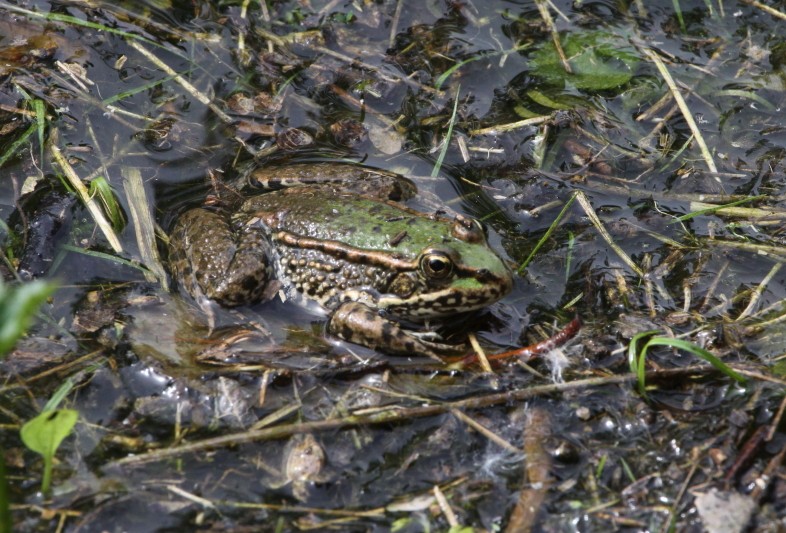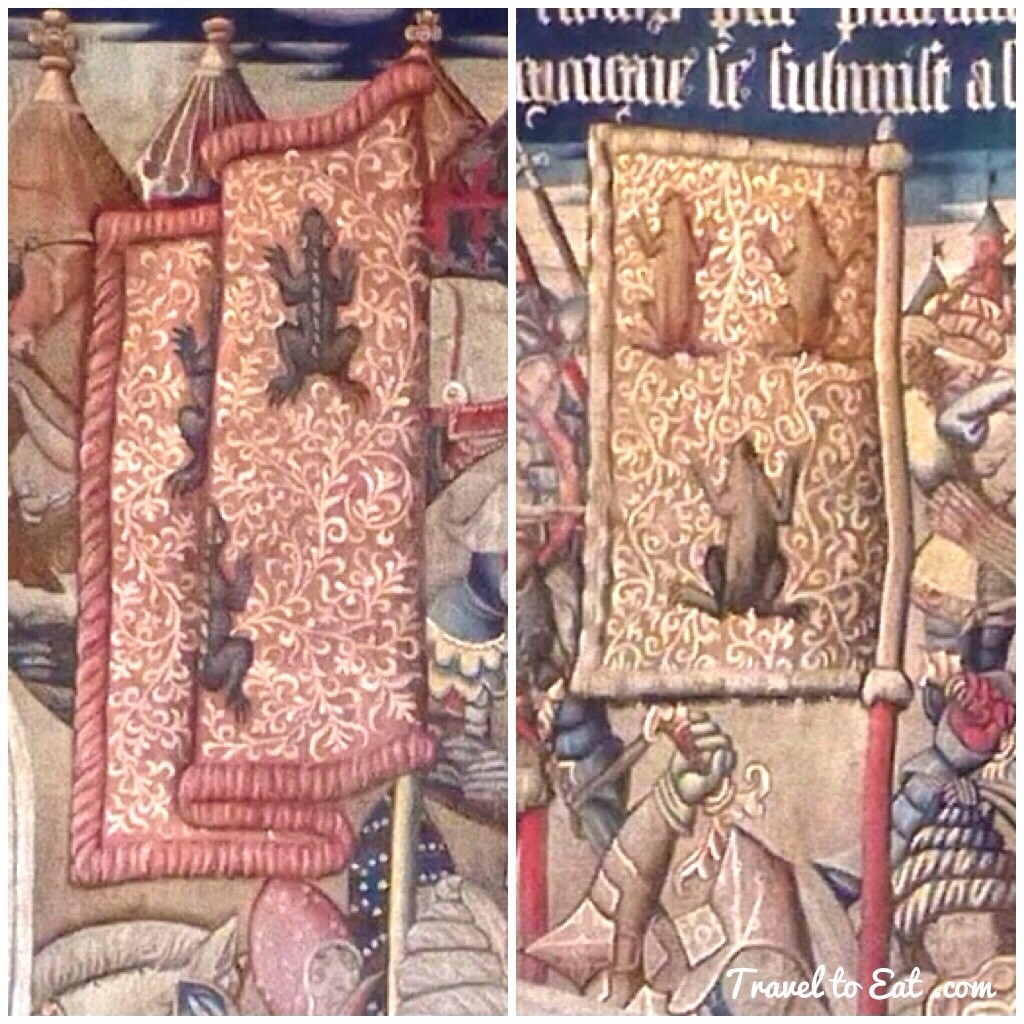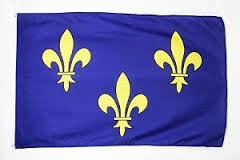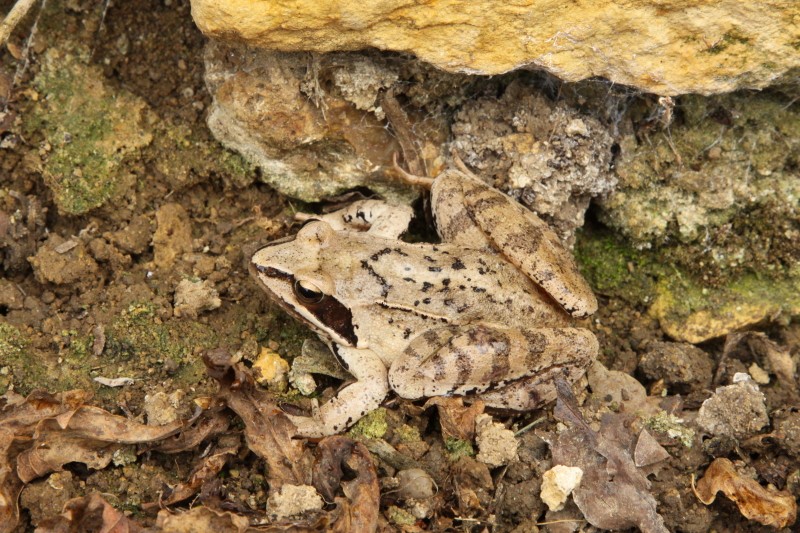Why Are French Called Frogs? This seemingly simple question has a complex and fascinating history. At WHY.EDU.VN, we’ll explore the potential origins of this moniker, diving into historical anecdotes, linguistic connections, and cultural perceptions. Discover the rich tapestry of reasons behind this enduring nickname and expand your understanding of its nuances and related cultural references.
1. Introduction: Decoding the “Frog” Label for the French
The association of the French with the term “frogs” is a long-standing, albeit sometimes impolite, nickname. While seemingly straightforward, the origins of this moniker are multifaceted, steeped in history, heraldry, and perhaps a touch of culinary curiosity. This article will explore the most plausible explanations for why the French are called frogs, examining historical contexts, linguistic nuances, and cultural perceptions that have contributed to this enduring association. We will also delve into the symbolism of frogs in French history and culture.
2. The Culinary Connection: Frog Legs and National Identity
2.1 The Prevalence of Frog Legs in French Cuisine
One of the most commonly cited reasons for calling the French “frogs” is their consumption of frog legs. While frog legs are indeed a part of French cuisine, their popularity might be overstated. It’s possible that the consumption is more associated with tourists than the average French citizen.
2.2 Why Not Other Culinary Nicknames?
If eating a particular food was the sole basis for national nicknames, one might expect to hear Italians called “Pizzas,” Japanese called “Sushis,” or Indians called “Curries.” The fact that these associations are not as prevalent suggests that other factors are at play in the case of the French and “frogs.”
2.3 Historical Consumption of Frogs Beyond France
It’s important to note that the French were not the first, nor are they the only, people to consume frogs. Archaeological evidence suggests that the British were eating frog legs as far back as 7596 BC. The Chinese have also consumed frogs for centuries.
2.4 Religious Interpretations and Culinary Practices
One theory suggests that Catholic monks in France were permitted to eat frogs on days when meat was forbidden, as frogs were classified as fish. This allowed them to consume a source of protein during periods of abstinence.
2.5 The Broader Appeal of Frogs as a Food Source
Frogs are a readily available source of protein in many parts of the world. They are relatively easy to catch, making them an accessible food source. This widespread availability explains their consumption in various cultures.
2.6 A More Accurate Culinary Nickname?
Given the prevalence of snails in French cuisine, perhaps “Escargots” would be a more accurate culinary nickname for the French. However, the “frog” moniker has persisted, likely due to a combination of factors.
2.7 The Alliterative Appeal of “French Frogs”
The term “French frogs” is catchy and memorable due to the alliteration of the “fr” sound. This linguistic feature may have contributed to the widespread adoption of the nickname.
3. Parisian Origins: Swamps, Nobility, and Urban Snobbery
3.1 Versailles and the People of Paris
Another theory traces the origin of the “frog” nickname to the court of Versailles. Courtiers are said to have used the term to describe the people of Paris.
3.2 “Qu’en Disent Les Grenouilles?”
E. Cobham Brewer’s Dictionary of Phrase and Fable (1898) quotes the phrase “Qu’en disent les grenouilles?” (“What will the frogs [people of Paris] say?”) as a common court phrase at Versailles in 1791.
3.3 Lutetia: The Muddy Origins of Paris
The area where Paris is now located was once known as Lutetia, which translates to “Mud-land.” The city was surrounded by swamps, leading to the association of Parisians with frogs and toads living in the marshy environment.
3.4 Nobility’s Perspective on Parisians
The French nobility visiting Versailles reportedly referred to Parisians as “frogs” because of the swampy surroundings of the city. This initial association may have later expanded to encompass all French people.
3.5 Parisian Counterattack: A Snobbish Reversal?
Some believe that Parisians, in turn, used the term “frog” as a derogatory label for non-Parisians. The sophisticated urbanites may have looked down on the rural taste for amphibians and applied the term to the rest of the French population.
4. Heraldic Connections: From Clovis’ Toads to the Fleur-de-Lis
4.1 King Clovis and the Toads
One of the most compelling theories links the “frog” nickname to heraldry, specifically King Clovis, who initially had three frogs or toads on his heraldic shield and flag.
4.2 Nostradamus and the Ancient Toads
It’s speculated that Nostradamus may have been the first to refer to the French in amphibious terms. He allegedly said, “Les anciens crapauds prendront Sara,” meaning “the ancient toads shall take Sara.” Sara is Aras spelled backward, and Clovis’ shield did feature three toads. The French eventually captured the city of Aras from the Spaniards under Louis XIV. While Nostradamus used the word “crapauds” (toads) rather than “grenouilles” (frogs), the connection is still noteworthy.
4.3 The Fleur-de-Lis: A Misinterpreted Symbol?
When King Clovis converted to Christianity, he replaced the toads on his flag with the Fleur-de-Lis. The French flag then featured a blue background with gold Fleur-de-Lis. It’s possible that the English, unfamiliar with the Fleur-de-Lis as a stylized lily, mistook it for a gold frog, further solidifying the association of the French with frogs.
5. Historical Conflict: Derogatory Terms in Times of War
5.1 England and France: A History of Conflict
The English and French have a long history of conflict. During times of war, soldiers often develop derogatory terms for their enemies.
5.2 Battlefield Insults and Visual Cues
English soldiers may have invented the “frog” nickname based on what they saw on the battlefield: the flags, standards, and heraldic shields of the French army. The frogs, toads, and Fleur-de-Lis may have all been conflated into a single, easily recognizable symbol of the enemy.
6. Royal Association: Queen Elizabeth I and Her “Frog”
6.1 Queen Elizabeth I’s Affectionate Nickname
Queen Elizabeth I of England (1533-1603) was known to use the term “frog” affectionately. She was fond of dancing, which involved leaping movements.
6.2 The Leaping French Ambassador
A young man in the French ambassadorial staff at the court excelled at these leaps, and the Queen called him “My little frog”. English courtiers were envious and started using the term as a derogatory term for all French men. She though would frequently apply the word affectionately to her close friends.
6.3 Elizabeth’s “Dear Frog”
She often referred to at least one of her very close friends as “my dear frog,” and at one point this gentleman was her representative in France.
6.4 The Duke of Anjou: A Royal Suitor
For a brief time, Elizabeth was engaged to the Duke of Anjou, the youngest son of Henri II. Despite the age gap, the two became close, and Elizabeth dubbed him her “frog.”
6.5 A Frog-Shaped Earring?
Some believe this nickname was attributed to a frog-shaped earring he had given her. The union ultimately failed, as Elizabeth never married.
7. Other Explanations: From Adam’s Apples to Unlikely Theories
7.1 The Bulging Adam’s Apple Theory
One unusual theory suggests that the French are called frogs because their Adam’s apples bulge out when they laugh, resembling the throat of a frog.
7.2 The Unlikeliness of the Theory
This explanation is quite far-fetched and unlikely to be the primary reason for the nickname.
8. Conclusion: A Multifaceted Origin
8.1 The Most Plausible Explanation
The most likely explanation for why the French are called “frogs” is a combination of factors. The association likely originated in the Middle Ages as a derogatory term used by English soldiers.
8.2 Contributing Factors
The French fondness for frog legs may have reinforced the nickname, as did the heraldic symbols of frogs and Fleur-de-Lis. Queen Elizabeth using the word frog to describe someone she was fond of.
8.3 The Enduring Power of Nicknames
Nicknames, even those with potentially offensive origins, can persist for centuries. The “frog” label for the French is a testament to the enduring power of language and cultural perception.
9. Uncover More Fascinating Facts with WHY.EDU.VN
Are you intrigued by the origins of cultural nicknames and historical trivia? At WHY.EDU.VN, we’re dedicated to providing accurate, in-depth answers to your burning questions. We explore a wide range of topics, from history and science to culture and current events, offering expert insights and diverse perspectives.
10. Your Questions Answered: A Call to Explore WHY.EDU.VN
Do you have a question that needs answering? Don’t waste time sifting through unreliable sources. Visit WHY.EDU.VN and let our team of experts provide you with the comprehensive, trustworthy information you seek.
11. Connect with Us
Have more questions? Reach out to us. Our team at WHY.EDU.VN is here to help you explore the world of knowledge.
Address: 101 Curiosity Lane, Answer Town, CA 90210, United States
Whatsapp: +1 (213) 555-0101
Website: WHY.EDU.VN
12. FAQ: Unveiling More About the French “Frog” Nickname
12.1 Is it offensive to call the French “frogs?”
While not always intended as a severe insult, it can be considered impolite or derogatory, especially in formal settings.
12.2 Do the French eat a lot of frog legs?
While frog legs are part of French cuisine, they are not as commonly consumed as some other dishes.
12.3 What is the French word for “frog?”
The French word for “frog” is “grenouille.”
12.4 Did King Clovis really have frogs on his flag?
Initially, yes. Before his conversion to Christianity, King Clovis’ flag featured three toads, which were later replaced with the Fleur-de-Lis.
12.5 What does Fleur-de-Lis mean?
Fleur-de-Lis translates to “lily flower” in English. It is a stylized depiction of a lily, often associated with French royalty.
12.6 Why did the English and French have so many conflicts?
The English and French have a long and complex history, marked by territorial disputes, dynastic rivalries, and economic competition.
12.7 Was Queen Elizabeth I really close to the Duke of Anjou?
Yes, for a brief period, they were close, and she affectionately called him her “frog.”
12.8 Are there other nicknames for the French?
Yes, other nicknames include “cheese-eating surrender monkeys” and “the Frenchies.”
12.9 Is there any evidence that the French called non-Parisians “frogs?”
This theory is less well-documented than other explanations, but it is a possibility.
12.10 Where can I find more information about French culture and history?
WHY.EDU.VN offers a wealth of information on a variety of topics, including French culture and history.
13. Search Intent Analysis: Why People Ask “Why Are French Called Frogs?”
Understanding the various reasons why people search for the answer to “Why are French called frogs?” helps tailor content to meet their needs. Here are five key search intents:
| Intent | Description | Example Questions |
|---|---|---|
| Origin & History | Users want to know the historical roots and evolution of the nickname. | “Where did the name ‘frogs’ for the French come from?” |
| Cultural Significance | Users are curious about the cultural implications and whether the term is considered offensive. | “Is it rude to call the French ‘frogs’?” |
| Culinary Connection | Users are exploring the link between the nickname and the French consumption of frog legs. | “Do French people really eat a lot of frogs?” |
| Heraldic Symbolism | Users want to understand if the nickname has anything to do with historical symbols like the Fleur-de-Lis. | “Does the Fleur-de-Lis have anything to do with calling the French ‘frogs’?” |
| Linguistic & Etymological Reasons | Users are interested in the linguistic reasons why this particular nickname stuck. | “Is there a linguistic reason why the French are called ‘frogs’?” |





14. Table: Key Theories Behind the “Frog” Nickname
| Theory | Description | Evidence |
|---|---|---|
| Culinary Consumption | The French eat frog legs, making “frog” an easy association. | Frog legs are a dish in French cuisine; readily available protein source. |
| Parisian Swamps | Parisians lived in a swampy area, leading to the nickname. | Paris was once known as Lutetia, meaning “Mud-land,” surrounded by swamps; court phrase at Versailles “Qu’en disent les grenouilles?” |
| Heraldic Symbols | King Clovis’ flag initially featured toads, and the Fleur-de-Lis was mistaken for a frog. | Clovis’ flag with toads; potential misinterpretation of the Fleur-de-Lis by the English. |
| Historical Conflict | Derogatory term used by English soldiers during conflicts. | English and French history of conflict; soldiers often create derogatory terms for enemies. |
| Queen Elizabeth I’s Nickname | Queen Elizabeth I used “frog” as an affectionate term. | Historical records of Queen Elizabeth I using the term “frog” to refer to people she was fond of. |
15. Why Trust WHY.EDU.VN?
At WHY.EDU.VN, we adhere to the highest standards of E-E-A-T (Experience, Expertise, Authoritativeness, and Trustworthiness) and YMYL (Your Money or Your Life) principles. We provide well-researched, fact-checked information from credible sources to ensure accuracy and reliability.
16. Let WHY.EDU.VN Answer Your Questions Today
Don’t remain curious. Let the experts at why.edu.vn provide you with the answers you seek. Visit our website and submit your questions today!